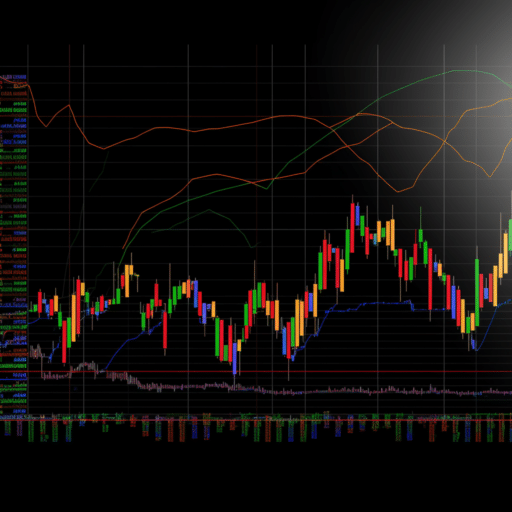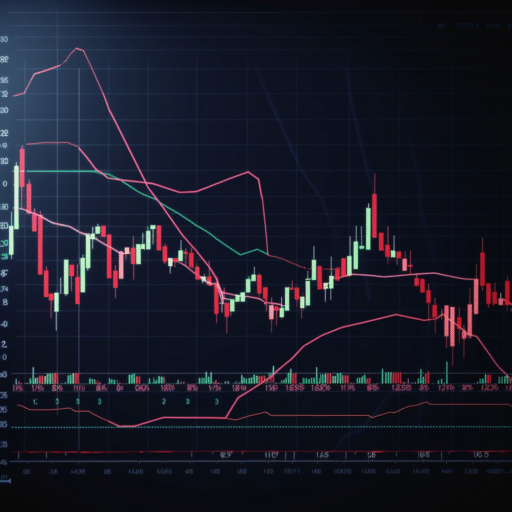Healthcare stocks allow investors to profit while improving healthcare and meeting the growing global need for quality medical services.
The healthcare industry continues to be the largest employer in the US.
That’s why it’s not surprising that healthcare stocks have been among the best performers in the stock market over the past five years.
The most recent available data from the Centers for Medicare & Medicaid Services puts healthcare spending at 18.3% of GDP in the United States in 2021.
Healthcare spending in the United States is expected to expand at a rate of 5.4% each year through 2031, from an estimated $4.4 trillion in 2022, according to the Centers for Medicare & Medicaid Services.
If you want to invest as an expat or high-net-worth individual, which is what i specialize in, you can email me (advice@adamfayed.com) or use WhatsApp (+44-7393-450-837).
Nothing written here is financial advice.
We don’t advise holding individual stocks. ETFs and funds are a better option.
This article merely looks at some of the better options.
Advantages of Investing in Healthcare Stocks
Despite market ups and downs, several healthcare companies have proven to be reliable and profitable investments. However, government involvement brings additional dangers to the industry.

While there is no industry that is completely immune to economic downturns, the healthcare sector does rather well.
Employment in the healthcare sector generally remains stable and even grows during economic downturns, according to research published by the National Bureau of Economic Research in 2021.
Paying dividends is a common practice among the healthcare industry’s providers, insurers, and long-standing biotech, pharmaceutical, and medical equipment companies. Know about the best indexes for dividends here.
Healthcare providers account for almost 10% of the dividend aristocrats (S&P 500 stocks that have raised dividends every year for at least 25 years).
Risks of Investing in Healthcare Stocks
There is no such thing as a risk-free investment in the stock market; one such risk is that a company’s rivals may come out with an even better product or service.
These dangers are shared by all stocks, but those in the healthcare industry confront additional challenges.
The medical field is extremely governed. It is possible for pharmaceutical and medical device companies to miss the regulatory clearances they need to bring new goods to market.
The future growth prospects of a healthcare stock are very susceptible to regulatory changes. The FDA is responsible for regulating pharmaceuticals and medical equipment in the United States.
It’s in your best interest to follow the FDA’s actions as they pertain to the medical stocks you’re tracking.
There is a substantial litigation risk associated with many healthcare stocks. When patients believe that a company’s product or service has harmed them, they can file a lawsuit against that company.
This includes biopharmaceutical firms, medical device manufacturers, and healthcare providers.
Manufacturers of both pharmaceuticals and medical devices must also win over payers such as private health insurance, pharmacy benefit managers, and government agencies.
The potential for expansion can be stunted if businesses are unable to secure reimbursement authorization.
The degree of reimbursement received by many healthcare providers is also heavily reliant on Medicare.
Medicare is about to undergo changes that will give the program more leverage in price negotiations with pharmaceutical companies.
Medicare’s reduced payments for some pharmaceuticals could have a detrimental impact on sales and earnings for some pharmaceutical companies.
What are the Types of Healthcare Stocks
There are a great deal of stock options available because of the expansive nature of the healthcare sector. The following are the four major types of healthcare stocks:
Medical Device Stocks
Companies that focus on the manufacture of medical supplies and devices. Disposable gloves and thermometers are just two examples; other examples include mechanical heart valves and robotic surgical devices.
There are a great deal of health technology companies that fall under the umbrella of the medical device market.
Drug Stocks
Research and development of new medications to treat and prevent sickness is the primary focus of the pharmaceutical industry.
In contrast to pharmaceutical companies, which generate new medications through the use of chemicals, biotech companies create new medicines through the use of living organisms like bacteria and enzymes.
Stocks in the pharmaceutical business range from companies worth multiple billions of dollars to startups that do not yet have any products ready for purchase in the market.
Healthcare Provider Stocks
Those who work in the healthcare profession are the ones who are willing to put themselves in potentially dangerous situations in order to assist other people.
Nursing homes, assisted living centers, and retirement villages are a few types of retirement communities.
Payer Stocks
Payers like health insurance companies and pharmacy benefit managers (also known as PBMs) are examples of entities that have a substantial impact on the functioning of the American healthcare system.
PBMs are responsible for managing the coverage of prescription medications for companies and health plans, whereas insurers are in charge of collecting premiums from individuals and corporations to pay for medical expenses.
What are the Best Healthcare Stocks
Eli Lilly and Co. (LLY)
Pharmaceutical giant Eli Lilly produces name-brand drugs for a wide range of conditions, from diabetes and cancer to neurological diseases.
The Alzheimer’s disease drug, donanemab; the leukemia and lymphoma drugs, pirtobrutinib and tirzepatide; and the obesity and cardiovascular disease drugs.
An increase in the value of Eli Lilly shares is contingent on both the continued success of the company’s existing pharmaceuticals and the progress it makes in developing its pipeline of prospective new drugs.
In comparison to the same period a year ago, Eli Lilly’s revenue grew by a whopping 28% in the second quarter. Mounjaro, their new diabetes drug, is largely responsible for this expansion.
HCA Healthcare, Inc. (HCA)
HCA Healthcare, Inc. (NYSE:HCA) was founded in the year 1968 and has its corporate headquarters located in Nashville, Tennessee.
The firm operates an extensive network of hospitals, clinics, and other medical establishments inside the territories of the United States and the United Kingdom.
HCA Healthcare, Inc. (NYSE:HCA) has just disclosed its acquisition of 41 urgent care centers from FastMed, so expanding its presence in the state of Texas.
The firm presently manages a total of 395 physician practices and 92 urgent care clinics throughout the state of Texas.
HCA Healthcare, Inc. (NYSE:HCA) has allocated a total of $6.6 billion in capital expenditures over the course of the past six years towards initiatives aimed at expanding and modernizing its operations inside the state.
As of May 29th, shareholders of HCA Healthcare, Inc. (NYSE:HCA) can anticipate an annual dividend yield of 0.86%.
Boston Scientific Corp. (BSX)
Boston Scientific is a well-known medical device manufacturer. The company’s primary areas of expertise are in cardiology, rhythm management, and medical-surgical devices.
The company’s current products and those in the pipeline are of exceptional quality and inventiveness.
The user believes that Watchman FLX, Exalt-D, POLARx, LUX-Dx, Eluvia, and SpyGlass will be the primary growth drivers for Boston Scientific.
The company’s projected growth in sales over the next few years is predicated on the company’s ability to maintain its position as an industry leader.
However, when compared to many of its rivals, the stock price at present represents significant upside potential. It is expected that revenues will rise by 10% in 2023.
Merck & Co. Inc. (MRK)
Merck is a well-known company all over the world because of its success in the pharmaceutical industry.
Merck reported a 3% gain in revenue over the previous year’s second quarter, with the majority of the growth attributable to a 19% increase in sales of their best-selling cancer medicine Keytruda.
The sales of Gardasil, an HPV vaccine manufactured by Merck, increased dramatically, by 47%. The second half of 2023 will be more tough for Merck.
Recent purchases of Prometheus Bioscience and Acceleron Pharma, however, could put the company in a stronger position for growth in 2024 and beyond.
If Acceleron is successfully implemented, Merck will be in a better position to capitalize on the growing market for cardiovascular disease treatments.
DexCom, Inc. (DXCM)
DexCom, Inc. (NASDAQ:DXCM) is a prominent company that specializes in the development and manufacturing of continuous glucose monitoring (CGM) devices for those diagnosed with diabetes.
Founded in 1999, DexCom is headquartered in San Diego, California.
In a research report released on April 28, Matthew Blackman at Stifel raised DexCom, Inc. (NASDAQ:DXCM) from a Buy rating and a $130 price target to a Buy rating and a $140 price target.
Regeneron Pharmaceuticals Inc. (REGN)
Biotech company Regeneron Pharmaceuticals focuses on treating metabolic disorders, inflammatory diseases, cancer, and respiratory ailments through the creation of therapeutic treatments.

After the Food and Drug Administration (FDA) rejected the high-dose variety of Eylea, a drug used to treat wet age-related macular degeneration, Regeneron’s stock price dropped significantly in June. However, the current downturn is a good time to buy.
The FDA was pleased to find no evidence suggesting Eylea posed any health risks or was ineffective.
The drug’s third-party manufacturer was the only target of the rejection. It is possible that the high-dose version of Eylea will be approved in the future, and sales of the drug will continue to rise steadily.
Pfizer Inc. (PFE)
Pfizer is a biopharmaceutical giant that produces a wide variety of medicines and has a sizable pipeline of promising new treatments under development.
Pfizer predicts that by 2023, sales of its Comirnaty COVID-19 vaccine will have dropped by 64 percent.
Sales of Paxlovid, an oral antiviral developed by Pfizer and targeting the COVID-19 subtype, are predicted to fall by 58% over the same time frame.
It’s also worth noting that when patent exclusivity expires between 2025 and 2030, the company stands to lose upwards of $17 billion in revenue.
Pfizer’s 19 pharmaceutical medicines in development had the potential to bring in $20 billion in revenue by 2030.
Biogen Inc. (BIIB)
Biogen Inc. (NASDAQ:BIIB) occupies the tenth position on our compilation of the foremost healthcare stocks that are recommended for purchase at present.
On May 11, Argus raised its price target for Biogen Inc. (NASDAQ:BIIB) from $320 to $350. The stock was upheld with a Buy rating.
The capacity of Leqembi to act as a catalyst for the growth of Biogen Inc. (NASDAQ:BIIB) shares is contingent upon the approval of a supplementary biologics license application by the regulatory agency, specifically for the treatment of early-stage Alzheimer’s disease.
Biogen Inc. (NASDAQ:BIIB) stands to potentially enhance its growth prospects should the anticipated review and approval process for Lecanemab in China, Europe, and Japan unfold as intended.
Abbott Laboratories (ABT)
Abbott Laboratories is a premier healthcare conglomerate and a member of the elite dividend aristocrats club.
Companies that have grown their dividend payments for at least 25 years in a row are included in this prestigious group.
Abbott Laboratories raised its quarterly dividend in 2022 from 47 cents to 51 cents, an increase of 8.5 percent.
As a result of the change, the dividend yield is now 2%. This past year was the 51st consecutive year that Abbott investors saw their dividend payments increase.
It is predicted that Abbott’s stock will outperform its competitors thanks to the company’s innovative and diversified business model, strong financial condition, and rising dividend.
Vertex Pharmaceuticals Inc. (VRTX)
Vertex Pharmaceuticals is a leading biopharmaceutical company that develops treatments for a wide range of diseases and disorders, including cystic fibrosis.
Sales of exa-cel, a gene-editing medicine developed by CRISPR Therapeutics AG, are subject to a profit-sharing agreement in which Vertex Pharmaceuticals Inc. holds a 60% share.
By 2023’s end, it’s possible that the FDA may give their blessing to commercially distribute this therapy. Vertex has a first-mover advantage in the cystic fibrosis market and is also conducting promising early and mid-stage clinical activities in other areas.
The person seems unusually upbeat about the prospects for the CTX001 treatment for sickle cell illness.
Humana Inc. (HUM)
Humana Inc. (NYSE:HUM), a corporation based in Louisville, Kentucky, provides health insurance products and services to individuals, corporations, and government programs.
In addition to its primary function, the enterprise functions as a healthcare services facilitator, facilitating the connection between patients and an extensive network of medical practices, hospitals, and pharmacies.
In a research note disseminated to investors on May 2, TD Cowen increased their price objective on Humana Inc. (NYSE:HUM) from $581 to $616.
Additionally, they upheld their Outperform rating on the stock. As of May 29th, Humana Inc. (NYSE:HUM) reported a forward dividend yield of 0.68% annually.
Amgen Inc. (AMGN)
Amgen is a well-known international biotechnology company that is widely regarded as a leader in the biotechnology sector worldwide.
Amgen has a strong pharmaceutical portfolio, with drugs like Tezspire (for severe asthma) and Lumakras (for cancer) among the most recent additions to the market.
The person is optimistic about the company’s Amjevita drug, which is designed to treat plaque psoriasis in a market estimated to be worth $25 billion.
After Humira’s patent expires at the beginning of 2023, this medication will be its first commercial competitor.
Amgen can easily meet its ambitious growth targets of mid-single digits in yearly sales and at least 9% in annual profitability through 2030.
Intuitive Surgical Inc. (ISRG)
The robotic systems made by Intuitive Surgical are used in a wide range of medical procedures. Intuitive’s management team is among the best in the medical device industry.
The company stands out from the crowd thanks to its high-profit margins, promising growth prospects, and resilient market presence.
The spread of the pandemic has helped speed up the transition to robotic surgery.
Furthermore, Intuitive’s systems have shown to be a fruitful source of long-term recurring sales for instruments and accessories.
The existing market value of the company accounts for room to increase profit multiples. It is expected that the 2023 revenue will be up 15% from the previous year.
Bristol-Myers Squibb Company (BMY)
Bristol-Myers Squibb Company (NYSE:BMY), a biopharmaceutical firm headquartered in New York, is primarily dedicated to the research and development of therapeutic interventions targeting various medical conditions such as cancer, cardiovascular disease, and immunological diseases.

Pzena Investment Management, with a stake valued at around $312.7 million as of the first quarter of 2023, stands as the foremost hedge fund investor in Bristol-Myers Squibb Company (NYSE:BMY).
In the initial quarter, the hedge fund overseen by Richard Pzena acquired an additional 17% of the company’s stock compared to the preceding quarter.
Medtronic PLC (MDT)
Medtronic is an industry leader in the creation of medical technology, with a focus on four primary areas: cardiovascular, medical-surgical, neurological, and diabetes.
As a strategic move to optimize its portfolio and emphasize sales growth in more lucrative sectors, the company plans to sell its patient monitoring and respiratory interventions business.
After the COVID-19 pandemic and consequent staffing shortages in healthcare facilities, there has been a worldwide recovery in the number of medical procedures performed.
Medtronic has a track record of expanding its market share through the development and release of innovative new products.
Final Thoughts
Investors who want to capitalize on the promising prospects of the healthcare sector should think about diversifying their portfolios through a combination of private banking services, strategically managed investment funds, and exposure to the growth potential of the sector by exploring the best healthcare ETFs and the best biotech ETFs.
Diversification is important for investors who want to capitalize on the promising prospects of the healthcare sector.
As the healthcare business continues to adapt to new technology developments and demographic trends, investing in healthcare stocks and ETFs can be a rewarding choice.
These investments provide stability, long-term growth potential, and the opportunity to contribute to the overall health and happiness of society.
Pained by financial indecision? Want to invest with Adam?

Adam is an internationally recognised author on financial matters, with over 760.2 million answer views on Quora.com, a widely sold book on Amazon, and a contributor on Forbes.



